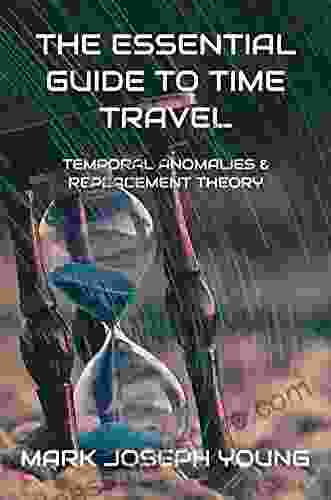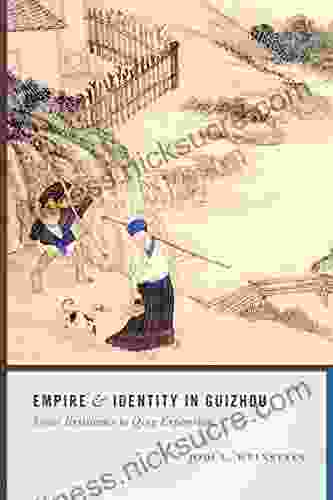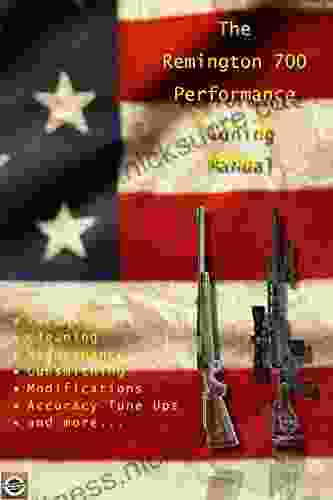Empire And Identity In Guizhou: Local Resistance To Qing Expansion (Studies On Ethnic Groups In China)

The Qing dynasty, which ruled China from 1644 to 1912, embarked on an unprecedented expansionist project that extended its control over vast territories inhabited by diverse ethnic groups. These groups, collectively known as minorities, fiercely resisted the Qing's attempts to assert its authority, leading to numerous uprisings and conflicts.
This article examines local resistance to Qing expansion among ethnic groups in China, focusing on specific case studies to illustrate the dynamics and complexities of the interaction between the Qing state and its subject populations.
Case Study: The Miao Uprising in Guizhou (1795-1806)
The Miao people, an indigenous group concentrated in Guizhou province, mounted a significant uprising against Qing rule in the late 18th century. The rebellion was sparked by abuses committed by corrupt Qing officials, including heavy taxation and the seizure of Miao land.
5 out of 5
| Language | : | English |
| File size | : | 4742 KB |
| Text-to-Speech | : | Enabled |
| Enhanced typesetting | : | Enabled |
| Print length | : | 234 pages |
| Screen Reader | : | Supported |
Led by a shaman named Shi Sanbao, the Miao rallied local communities and established a self-governing administration. They employed guerrilla tactics to resist Qing forces, taking advantage of the rugged terrain and their knowledge of the local area.
Despite initial successes, the Qing eventually crushed the uprising, deploying overwhelming military force and employing a strategy of divide-and-conquer, isolating the Miao from potential allies.
Case Study: The Dungan Revolt in Northwest China (1862-1878)
The Dungan Revolt, also known as the Hui Rebellion, was a major uprising by the Hui Muslim community in the northwest provinces of Shaanxi and Gansu. The rebellion was fueled by religious tensions between the Hui and the Han Chinese, as well as economic grievances against Qing rule.
Led by Ma Hualong, a charismatic religious leader, the Hui formed a powerful military force and controlled vast territories during the revolt. The Qing government struggled to quell the rebellion, sending numerous armies to suppress the Hui.
Eventually, the Qing succeeded in ending the revolt, resorting to a combination of military force and negotiations with Ma Hualong.
Case Study: The Yi Resistance in Yunnan (1856-1873)
The Yi people, another indigenous group in Yunnan province, fiercely resisted Qing expansion throughout the 19th century. The Yi were divided into numerous clans and lineages, each with its own chieftain, which made it difficult for the Qing to establish centralized control.
Qing officials attempted to impose a system of indirect rule through the appointment of Yi chieftains, but these efforts were met with limited success. The Yi continued to raid and harass Qing outposts and settlements.
In the face of persistent resistance, the Qing resorted to a policy of divide-and-conquer, pitting different Yi clans against each other and isolating those who resisted.
Dynamics of Resistance
The local resistance to Qing expansion among ethnic groups in China was influenced by a complex interplay of factors, including:
Cultural and Ethnic Identity: Ethnic groups often resisted the Qing in order to preserve their distinct cultural and religious traditions.Economic Grievances: Abuses by Qing officials, such as heavy taxation and land seizure, provided a major motivation for resistance.Political Autonomy: Ethnic groups sought to maintain some degree of self-government and resist the imposition of Qing centralized rule.Geographic Advantages: Many ethnic groups inhabited remote and mountainous regions, which provided them with a strategic advantage in defending against Qing forces.
Qing Response
The Qing government employed a variety of strategies to suppress local resistance:
Military Force: The Qing deployed large armies to quell uprisings and crush armed resistance.Diplomacy and Negotiations: The Qing sometimes negotiated with rebel leaders, offering concessions in exchange for pacification.Divide-and-Conquer: The Qing exploited rivalries and tensions within ethnic groups to isolate those who resisted.Cultural Assimilation: The Qing promoted intermarriage and cultural exchange as a means of integrating ethnic groups into the wider Chinese society.
Impact and Legacy
The resistance of ethnic groups to Qing expansion had a significant impact on the Qing dynasty and on Chinese history.
Erosion of Qing Authority: The uprisings and conflicts weakened the central authority of the Qing government and undermined its ability to control its vast territories.Increased Military Spending: The Qing's efforts to suppress resistance led to increased military spending and diverted resources from other areas.Ethno-Cultural Tensions: The conflicts between the Qing and ethnic groups exacerbated ethno-cultural tensions and created lasting divisions within Chinese society.Emergence of Nationalist Sentiment: The resistance of ethnic groups contributed to the rise of nationalist sentiment in China and laid the foundation for later challenges to Qing rule.
The local resistance of ethnic groups to Qing expansion in China was a complex and multifaceted phenomenon, driven by a combination of cultural, economic, and political factors. The Qing government's response, involving a mix of military force, diplomacy, and cultural assimilation, had a significant impact on the dynasty's authority and on the course of Chinese history. The legacy of resistance continues to shape ethno-cultural relations and nationalist sentiment in China today.
5 out of 5
| Language | : | English |
| File size | : | 4742 KB |
| Text-to-Speech | : | Enabled |
| Enhanced typesetting | : | Enabled |
| Print length | : | 234 pages |
| Screen Reader | : | Supported |
Do you want to contribute by writing guest posts on this blog?
Please contact us and send us a resume of previous articles that you have written.
 Fiction
Fiction Non Fiction
Non Fiction Romance
Romance Mystery
Mystery Thriller
Thriller SciFi
SciFi Fantasy
Fantasy Horror
Horror Biography
Biography Selfhelp
Selfhelp Business
Business History
History Classics
Classics Poetry
Poetry Childrens
Childrens Young Adult
Young Adult Educational
Educational Cooking
Cooking Travel
Travel Lifestyle
Lifestyle Spirituality
Spirituality Health
Health Fitness
Fitness Technology
Technology Science
Science Arts
Arts Crafts
Crafts DIY
DIY Gardening
Gardening Petcare
Petcare Valora Conciencia En Los Medios
Valora Conciencia En Los Medios Jonny Bowden
Jonny Bowden Avi Gordon
Avi Gordon Terry Marsh
Terry Marsh Hank D Haney
Hank D Haney Robert Scott
Robert Scott Alice Gorman
Alice Gorman Penelope Freed
Penelope Freed Nic Sheff
Nic Sheff Erika Rogers Holland
Erika Rogers Holland Andrew Yueh
Andrew Yueh Gary A Klein
Gary A Klein Mikel Jollett
Mikel Jollett Michael Vlessides
Michael Vlessides George Beinhorn
George Beinhorn Alexey Osadchuk
Alexey Osadchuk Charlie N Holmberg
Charlie N Holmberg Sarah K L Wilson
Sarah K L Wilson Rebecca Schwarzlose
Rebecca Schwarzlose Emma Lock
Emma Lock Gary Wayne
Gary Wayne Jim Mclean
Jim Mclean Alfred Tennyson
Alfred Tennyson Sarah A Chrisman
Sarah A Chrisman Christopher Mitchell
Christopher Mitchell Whitney Ferre
Whitney Ferre Alfred Tarski
Alfred Tarski Alice Boyes Ph D
Alice Boyes Ph D Richard H Coop
Richard H Coop Yvette Marquez Sharpnack
Yvette Marquez Sharpnack Alexei Yurchak
Alexei Yurchak Nel Noddings
Nel Noddings Alice Sebold
Alice Sebold Daniel Foor Phd
Daniel Foor Phd Alice Jolly
Alice Jolly Laura Katz
Laura Katz Penny Armstrong
Penny Armstrong Adrian Dingle
Adrian Dingle Said Hasyim
Said Hasyim Michael Clark
Michael Clark Jay Golden
Jay Golden Heather Baker
Heather Baker K T Hanna
K T Hanna Heinrich Cornelius Agrippa Von Nettesheim
Heinrich Cornelius Agrippa Von Nettesheim Robert Lusetich
Robert Lusetich Jeremy Hance
Jeremy Hance Rob Price
Rob Price John F Gilbey
John F Gilbey Karin Perry
Karin Perry Robert P Crease
Robert P Crease Thomas F King
Thomas F King Ali Almossawi
Ali Almossawi Jeremy Benson
Jeremy Benson Michael Johnson
Michael Johnson Michael R Lindeburg
Michael R Lindeburg Jessica Riskin
Jessica Riskin David J Goldman
David J Goldman Nick Littlehales
Nick Littlehales Pottermore Publishing
Pottermore Publishing Anymom
Anymom C S Johnson
C S Johnson Suzy Amis Cameron
Suzy Amis Cameron Donna Bozzo
Donna Bozzo Mario Cleves
Mario Cleves Arthur Robert Harding
Arthur Robert Harding Shaun David Hutchinson
Shaun David Hutchinson Lara Carter
Lara Carter Joe Dolio
Joe Dolio Carmen Martinez Jover
Carmen Martinez Jover Richard Moore
Richard Moore Lance Akiyama
Lance Akiyama Stephen Blyth
Stephen Blyth John Pagano
John Pagano Peggy Vincent
Peggy Vincent Jean Chatzky
Jean Chatzky Paige Wolf
Paige Wolf Helen Purperhart
Helen Purperhart Laura Gauld
Laura Gauld Lydia Wylie Kellermann
Lydia Wylie Kellermann Jonathan Weiner
Jonathan Weiner Rev Cain
Rev Cain Ryuu Shinohara
Ryuu Shinohara Joseph Henrich
Joseph Henrich Ruby Vincent
Ruby Vincent Steve Parker
Steve Parker Suzanne Giesemann
Suzanne Giesemann Judy Murray
Judy Murray David Byrne
David Byrne Sabina Khan
Sabina Khan Eric Layton
Eric Layton Les Adams
Les Adams Patrick Ness
Patrick Ness Lauren Harris
Lauren Harris Paul Wilmott
Paul Wilmott Kevin Allen
Kevin Allen Raymond Barrett
Raymond Barrett Alice Walker
Alice Walker Matthew Silverman
Matthew Silverman Scott Linden
Scott Linden Neil J Salkind
Neil J Salkind Ron Ritchhart
Ron Ritchhart Alexandra Fuller
Alexandra Fuller Ali Wong
Ali Wong Darrin Gee
Darrin Gee Norman L Keltner
Norman L Keltner Paul Asay
Paul Asay Joshua R Eyler
Joshua R Eyler Jason Selk
Jason Selk Rachel Vitale
Rachel Vitale Frank C Hawkins
Frank C Hawkins Jessica Long
Jessica Long Susan Jules
Susan Jules Philip Rossoni
Philip Rossoni Nick Kalyn
Nick Kalyn Deborah Laird Meeks
Deborah Laird Meeks Frank J Tipler
Frank J Tipler Courtney Kenney
Courtney Kenney David Travis
David Travis Ali Velez Alderfer
Ali Velez Alderfer William King
William King Mary Kay Andrews
Mary Kay Andrews Alfred North Whitehead
Alfred North Whitehead Vicki Manning
Vicki Manning Mark Elbroch
Mark Elbroch Arno Ilgner
Arno Ilgner Frank White
Frank White Roy Barth
Roy Barth Alice Steinbach
Alice Steinbach Kathy Barker
Kathy Barker Luke Reynolds
Luke Reynolds Thomas Hund
Thomas Hund Dean Pohlman
Dean Pohlman Stephanie Mitchell Cnm Msn Dnp
Stephanie Mitchell Cnm Msn Dnp George S Fichter
George S Fichter Alexis Averbuck
Alexis Averbuck Keisuke Andrew
Keisuke Andrew Ted Zeff
Ted Zeff Michael Thorp
Michael Thorp Alexia Purdy
Alexia Purdy Larry Baush
Larry Baush Rosary O Neill
Rosary O Neill Arthur Lydiard
Arthur Lydiard Richard Preston
Richard Preston Lindsay Grace
Lindsay Grace John Pirillo
John Pirillo Joeanna Rebello Fernandes
Joeanna Rebello Fernandes Philip Freeman
Philip Freeman David Wolman
David Wolman Sir E A Wallis Budge
Sir E A Wallis Budge Christopher Steiner
Christopher Steiner Damon Centola
Damon Centola Rails To Trails Conservancy
Rails To Trails Conservancy Susan Albers
Susan Albers Karyl Rickard
Karyl Rickard Dr Heather L Johnson
Dr Heather L Johnson Mary Cholmondeley
Mary Cholmondeley Mike Commito
Mike Commito Nick Mitchell
Nick Mitchell Martha Sears
Martha Sears Jonathan Carroll
Jonathan Carroll Peter J Hotez
Peter J Hotez Chip K
Chip K David A Askay
David A Askay Mike Dauplaise
Mike Dauplaise Michael Cave
Michael Cave David R Hawkins
David R Hawkins Bjorn Kjellstrom
Bjorn Kjellstrom Tim Weston
Tim Weston Glade B Curtis
Glade B Curtis Karen Kovacs
Karen Kovacs Robin Kaplan M Ed Ibclc
Robin Kaplan M Ed Ibclc Krissy Moehl
Krissy Moehl Roddy Scheer
Roddy Scheer Anna Mathur
Anna Mathur Sacha Black
Sacha Black Ernie Palladino
Ernie Palladino Gen Tanabe
Gen Tanabe Thao Doan
Thao Doan Jack Batten
Jack Batten Bear Grylls
Bear Grylls Charles Hainsworth
Charles Hainsworth Guy Hunter Watts
Guy Hunter Watts Carl Erskine
Carl Erskine John C Hudson
John C Hudson Sammy Hagar
Sammy Hagar G Pascal Zachary
G Pascal Zachary Karl Wiegers
Karl Wiegers Tim R Swartz
Tim R Swartz John G West
John G West Corky Pollan
Corky Pollan David Maidment
David Maidment Diana Hudson
Diana Hudson Andy Kirkpatrick
Andy Kirkpatrick Sam Thoma
Sam Thoma Arthur Ashe
Arthur Ashe David A Ebert
David A Ebert Alexandra Robbins
Alexandra Robbins Sharon Powell
Sharon Powell Clay Bonnyman Evans
Clay Bonnyman Evans Heather Lang
Heather Lang Crysta Mchenry
Crysta Mchenry Samantha Cattach
Samantha Cattach Eileen Edna Power
Eileen Edna Power Alexandra Bracken
Alexandra Bracken Ally Nathaniel
Ally Nathaniel Whitney Miller
Whitney Miller Minda Harts
Minda Harts Matthew Cowsert
Matthew Cowsert Mike Westin
Mike Westin Karin Bojs
Karin Bojs Eleanor Drago Severson
Eleanor Drago Severson Leslie Berlin
Leslie Berlin Charles Murray
Charles Murray Karin Slaughter
Karin Slaughter Phillip Starr
Phillip Starr Alice Scordato
Alice Scordato Jermaine Harris
Jermaine Harris Alexia Leachman
Alexia Leachman Dustin Vaughn Warncke
Dustin Vaughn Warncke Seabury Blair
Seabury Blair Lara Alcock
Lara Alcock Robert L Kelly
Robert L Kelly Susan Wise Bauer
Susan Wise Bauer Robert Zimmerman
Robert Zimmerman Frank Amthor
Frank Amthor Melia Keeton Digby
Melia Keeton Digby Alicia Puglionesi
Alicia Puglionesi Alexis C Bunten
Alexis C Bunten Heidi Murkoff
Heidi Murkoff Mark Kaplan
Mark Kaplan Bayo Akomolafe
Bayo Akomolafe Pam Withers
Pam Withers Joel Weinberger
Joel Weinberger Nora Roberts
Nora Roberts Jim Vance
Jim Vance Joe Proulx
Joe Proulx Leslie Anthony
Leslie Anthony Judith Levin
Judith Levin Carolyn Highland
Carolyn Highland Devyn Stone
Devyn Stone Hape Kerkeling
Hape Kerkeling Becca Maberly
Becca Maberly M Mitchell Waldrop
M Mitchell Waldrop Jon Moxley
Jon Moxley Scott Weems
Scott Weems John Madieu
John Madieu Paul Green
Paul Green Stacy Tornio
Stacy Tornio Ryan Guldberg
Ryan Guldberg Kimberly V Garner
Kimberly V Garner Shaka Senghor
Shaka Senghor Alexandra Brodsky
Alexandra Brodsky Penny Warner
Penny Warner Jeff Cooper
Jeff Cooper Dagny Scott Barrios
Dagny Scott Barrios Bernie Clark
Bernie Clark David G Alciatore
David G Alciatore Alexey Zimarev
Alexey Zimarev Dylan Farrow
Dylan Farrow Sarah Rayner
Sarah Rayner Duncan Hines
Duncan Hines Dan Aadland
Dan Aadland Malala Yousafzai
Malala Yousafzai Alicia Ranoldo
Alicia Ranoldo Alice Nobile
Alice Nobile Frederick Courteney Selous
Frederick Courteney Selous Melissa Falkowski
Melissa Falkowski Executivegrowth Summaries
Executivegrowth Summaries Wayne Stewart
Wayne Stewart Ken Mink
Ken Mink Tim Maudlin
Tim Maudlin Brent Warner
Brent Warner Alina Adams
Alina Adams Alice Roberts
Alice Roberts Carmindy
Carmindy Ben Applebaum
Ben Applebaum Randy Spencer
Randy Spencer Bassem R Mahafza
Bassem R Mahafza Veronica O Keane
Veronica O Keane Jayson Georges
Jayson Georges Yehuda Lindell
Yehuda Lindell Mark C Purcell
Mark C Purcell Margaret Starbird
Margaret Starbird Dianna L Van Blerkom
Dianna L Van Blerkom Elan Golomb
Elan Golomb David Armitage
David Armitage Jane Gildart
Jane Gildart Alice Horton
Alice Horton Oivind Andersson
Oivind Andersson Lynne Robinson
Lynne Robinson Normandi Ellis
Normandi Ellis Alexandria Moran
Alexandria Moran Andrew Zimmern
Andrew Zimmern Tasha Alexander
Tasha Alexander Carol Chaitkin
Carol Chaitkin Kirstin Cronn Mills
Kirstin Cronn Mills Tom Mackie
Tom Mackie Mitchell P Jones
Mitchell P Jones Katie Walsh Flanagan
Katie Walsh Flanagan Ian Morris
Ian Morris Peter Woit
Peter Woit Joshua Coleman Phd
Joshua Coleman Phd Stuart Kauffman
Stuart Kauffman Mark Rippetoe
Mark Rippetoe Jerry Lynch
Jerry Lynch Michael J Behe
Michael J Behe John Abramson
John Abramson Joy S Kasson
Joy S Kasson Lawrence Weschler
Lawrence Weschler Louis Borgenicht
Louis Borgenicht Doc Norton
Doc Norton Malina Malkani Ms Rdn Cdn
Malina Malkani Ms Rdn Cdn Matilda Betham
Matilda Betham Theodore Roosevelt
Theodore Roosevelt Helen Hodgson
Helen Hodgson Rin Chupeco
Rin Chupeco Dan Jenkins
Dan Jenkins German Raigosa
German Raigosa Wendy Currie
Wendy Currie Brigid Moss
Brigid Moss Tracy Becker
Tracy Becker Sarah Melland
Sarah Melland Zar Petkov
Zar Petkov Jose Albani
Jose Albani Stacey L Bradford
Stacey L Bradford Lola Glass
Lola Glass Alice Kuipers
Alice Kuipers Amanda Ripley
Amanda Ripley Romina Garber
Romina Garber Chase Kosterlitz
Chase Kosterlitz Peter Flom
Peter Flom Eric Siegel
Eric Siegel Steve O Hearn
Steve O Hearn Erica Lyon
Erica Lyon Alice Beck Kehoe
Alice Beck Kehoe Milly Buonanno
Milly Buonanno Howard Pyle
Howard Pyle Alice Cooper
Alice Cooper Daniel Goleman
Daniel Goleman Alice Borchardt
Alice Borchardt Sir Oliver Lodge
Sir Oliver Lodge Lisa Manterfield
Lisa Manterfield David J Rothman
David J Rothman Matthew Dektas
Matthew Dektas Bob Toski
Bob Toski Eric Barker
Eric Barker Alfred Begum
Alfred Begum John Bemelmans Marciano
John Bemelmans Marciano Thomas Horn
Thomas Horn David G Kingdon
David G Kingdon Ellen Kane
Ellen Kane Alexandra Kennon
Alexandra Kennon Jeff Sambur
Jeff Sambur Stephen Ilg
Stephen Ilg Mary Johnson
Mary Johnson Gordon England
Gordon England Lyanda Lynn Haupt
Lyanda Lynn Haupt Elizabeth Clare Prophet
Elizabeth Clare Prophet Peter Collier
Peter Collier Steven Pressfield
Steven Pressfield Mike Wallace
Mike Wallace Kynan Bridges
Kynan Bridges Ali Novak
Ali Novak Jay Greenberg
Jay Greenberg Eric Mantle
Eric Mantle Stephen Altschuler
Stephen Altschuler Adah Bakalinsky
Adah Bakalinsky Erez Morabia
Erez Morabia Grackle Pigeon
Grackle Pigeon Dr C
Dr C Daniel M Davis
Daniel M Davis Michael Patrick Ghiglieri
Michael Patrick Ghiglieri Brian D Ambrosio
Brian D Ambrosio Michelle Rotteau
Michelle Rotteau Peter Gandy
Peter Gandy Alfie Kohn
Alfie Kohn Aris Spanos
Aris Spanos Wendy Wood
Wendy Wood Jen Noonan
Jen Noonan Michael Vassallo
Michael Vassallo Mary Beth Knight
Mary Beth Knight Alexis L Boylan
Alexis L Boylan Paul H Frampton
Paul H Frampton Virgil Herring
Virgil Herring Deborah Layton
Deborah Layton Lynne Cox
Lynne Cox Kathryn A Bard
Kathryn A Bard Scott Chimileski
Scott Chimileski David Gessner
David Gessner Amy Pickar Abernethy
Amy Pickar Abernethy Jessica Goodman
Jessica Goodman Alexandra Mayzler
Alexandra Mayzler Roland Huntford
Roland Huntford Li Ming Lee
Li Ming Lee Alexis Marie Chute
Alexis Marie Chute Emily Riehl
Emily Riehl Sigurd F Olson
Sigurd F Olson Josh Peter
Josh Peter Jodi L Weinstein
Jodi L Weinstein Sue Tidwell
Sue Tidwell Matthew Bowling
Matthew Bowling Paul Stephenson
Paul Stephenson Ali Katz
Ali Katz Jill Simonian
Jill Simonian Karen Mcquestion
Karen Mcquestion Mark Sisson
Mark Sisson Nancy Roe Pimm
Nancy Roe Pimm Dawn Brookes
Dawn Brookes Daniel Young
Daniel Young Complete Test Preparation Inc
Complete Test Preparation Inc America S Test Kitchen
America S Test Kitchen Crystal Waltman
Crystal Waltman Natalie Angier
Natalie Angier Michaelbrent Collings
Michaelbrent Collings Aram Attarian
Aram Attarian Alexandra M Levitt
Alexandra M Levitt David Watson
David Watson Hicham And Mohamed Ibnalkadi
Hicham And Mohamed Ibnalkadi Penelope Leach
Penelope Leach Gabriel Aluisy
Gabriel Aluisy Peter D Rogers
Peter D Rogers Kathleen Mcauliffe
Kathleen Mcauliffe Kathy Gunst
Kathy Gunst Robert Kagan
Robert Kagan Alice Miller
Alice Miller Reina Donovan
Reina Donovan Alexandra Heminsley
Alexandra Heminsley Robin G Jordan
Robin G Jordan Wade Davis
Wade Davis Sarah Bolitho
Sarah Bolitho Alice June
Alice June Mark Zondo
Mark Zondo Emily Levesque
Emily Levesque Beccy Hands
Beccy Hands Neil Schulenburg
Neil Schulenburg Craig S Brantley
Craig S Brantley Alfred Lambremont Webre
Alfred Lambremont Webre Martha Shirk
Martha Shirk Mark Harris
Mark Harris Allison Saft
Allison Saft Kev Reynolds
Kev Reynolds Patrick Torsell
Patrick Torsell Shannon Messenger
Shannon Messenger Henry Gilbert
Henry Gilbert Kenn Bivins
Kenn Bivins Alfred Edersheim
Alfred Edersheim Nancy Carpentier Brown
Nancy Carpentier Brown Carol Ekarius
Carol Ekarius William G Tapply
William G Tapply Patricia A Mckillip
Patricia A Mckillip George Takei
George Takei Hans Rosling
Hans Rosling Ashley Mardell
Ashley Mardell Carlton Kirby
Carlton Kirby Tracy Anderson
Tracy Anderson Peter Stark
Peter Stark Anders Morley
Anders Morley Douglas Starr
Douglas Starr Michele Filgate
Michele Filgate Zac Unger
Zac Unger Anthony Legins
Anthony Legins John Lohn
John Lohn Jenna Ortega
Jenna Ortega Hollie Henderson
Hollie Henderson Lonely Planet
Lonely Planet Michael Mcteigue
Michael Mcteigue Constantine A Balanis
Constantine A Balanis Jim Walden
Jim Walden Pantea Kalhor
Pantea Kalhor Eric Kaplan
Eric Kaplan Lauren Drain
Lauren Drain Vishal Sambharya
Vishal Sambharya Robert A Monroe
Robert A Monroe Thomas Hill
Thomas Hill Patti M Hummel
Patti M Hummel Udo Schaefer
Udo Schaefer
Light bulbAdvertise smarter! Our strategic ad space ensures maximum exposure. Reserve your spot today!

 Geoffrey BlairHistorical Memoir of the Snowbird and Alta Ski Patrols: A Legacy of Safety...
Geoffrey BlairHistorical Memoir of the Snowbird and Alta Ski Patrols: A Legacy of Safety... Jerome PowellFollow ·18.8k
Jerome PowellFollow ·18.8k Elton HayesFollow ·15.3k
Elton HayesFollow ·15.3k Bernard PowellFollow ·15.4k
Bernard PowellFollow ·15.4k Fabian MitchellFollow ·17k
Fabian MitchellFollow ·17k Terry PratchettFollow ·19.5k
Terry PratchettFollow ·19.5k Ruben CoxFollow ·12.2k
Ruben CoxFollow ·12.2k Walt WhitmanFollow ·6.2k
Walt WhitmanFollow ·6.2k Brian BellFollow ·5.7k
Brian BellFollow ·5.7k

 Derek Bell
Derek BellReflections For Your Heart and Soul: A Journey of...
In the depths of...

 Joseph Conrad
Joseph ConradThe Heroines Club: Empowering Mothers and Daughters
The Heroines Club...

 Milan Kundera
Milan KunderaThe First Kormak Omnibus: A Literary Expedition into the...
Prepare to embark on an extraordinary literary...

 W.H. Auden
W.H. AudenThe Color Purple: A Journey of Love, Resilience, and...
The Color Purple, a groundbreaking novel...

 Harvey Hughes
Harvey HughesTemporal Anomalies and Replacement Theory: Unraveling the...
: The Enigma of Time Time,...
5 out of 5
| Language | : | English |
| File size | : | 4742 KB |
| Text-to-Speech | : | Enabled |
| Enhanced typesetting | : | Enabled |
| Print length | : | 234 pages |
| Screen Reader | : | Supported |












